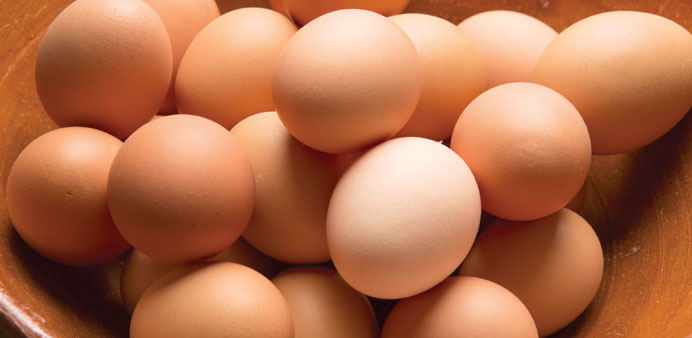|
A fried egg is simple enough to make, and hardly something to write home about. But if it’s one of Paolo Parisi’s eggs, and he cooks it for you himself, “it’s worth three (Michelin) stars,” says Aimo Moroni, a top Milan chef. |
Parisi heats the oil and puts just the white of the egg into the pan. As it changes colour, he scatters Parmigiano-Reggiano on top. Then he puts in the yolk to cook for 30 seconds with high heat, and then some ground pepper. Finally it’s time for tasting - but no plates or silverware. I dip a slice of bread directly into the iron pan, and I am also allowed to use a spoon so as not to miss any delicious bits.
The result depends on the skill of the chef, but also clearly on the quality of the egg. “An egg is an egg,” some may say. But over the past few years, Italy’s best restaurants have hyped up their dishes, using Paolo Parisi eggs in carbonara, mayonnaise or tiramisu.
Parisi, 57, is from Genoa but has lived for more than 30 years in a farmhouse in the Tuscan countryside near Pisa. He has an imposing stance, a great white beard, six children and slightly hermetic tendencies. He doesn’t watch TV or read the papers because he is convinced that his refuge in the hills is the best thing in the world.
“Too much information misinforms you,” he says.
The story of this King of Eggs is one of initiative and can serve as a good lesson to anyone: Economics is important, but so is loving your work. The son of a doctor, Parisi began to study medicine, but was stopped by a revelation. “I suddenly realised that I would only start to enjoy life at 40.”
This seemingly minor existential crisis would indeed change his life forever. “It was a small failure and it was somewhat therapeutic when I went home and told (my parents) that I wasn’t going back.” He set off with a friend for Africa, which they toured in a van for a year, before returning to work as a waiter and spending much of his free time experimenting with drugs.
He would eventually return home to begin “a normal life”.
“I went back to Genoa and I felt like I had been reborn with a clean mind and a healthy body,” he says. “But I had to find a job. So I thought that if I was to spend 80% of my time doing something, it better be something that I enjoy. I saw people who worked just for the money, people who fight traffic on the highway or cram themselves into a ferry every day. It’s a social sickness - humans are absurd.”
Only a few professions came to mind as Parisi sought work: singer, actor, artist. “But, in the end, they weren’t for me. So, I chose sales and worked at that for a while. I liked the idea of going around, organising my own time, but most of all I liked that I earned what I sold.”
Parisi convinced his father in 1981 to buy the farmhouse in which he now lives. It was ready in 1984, and he went to live there after he was married. “I realised that I really loved nature and the countryside,“ he says. “We were living there when there wasn’t even heating - for four years we slept with seven quilts covering us!”
He began what is known in Italy as “agriturismo”, or agricultural tourism, making a mark in the sector.
But Parisi soon set himself a new challenge: to be the best egg producer. And this is where he hit on his singular idea. “I got some leghorn hens, which are the most prevalent in the world. Then, since I also had some goats, I thought about giving the milk to the hens. The result was amazing: snow white eggs with rich egg whites and creamy, soft yolks.”
So the legendary Paolo Parisi egg was born, and its creator began to sell it in supermarkets - his ideology is quality products for everyone. But, of course, there’s an obstacle. “My eggs are an absurd price,” he admits. He sells just one for 88 euro cents (QR4.40), but in shops they can be up to two euros (QR10) each.
“But, you know something? People should think about this: Chewing gum costs 85 euros (QR427) a kilogram. A carton of (six) of my eggs costs 9 euros (QR45), sometimes less. And you can cook them in so many ways.”
Today, Parisi has 2,000 hens that produce 1,000 eggs daily. If you ask him what’s special about the eggs, he’ll tell you this: “I could give the spiel about protein, Omega 3, water quality, and so on. But the real truth came once from a child who ate one: ‘This egg knows more than the others.’” - Worldcrunch/La Stampa

